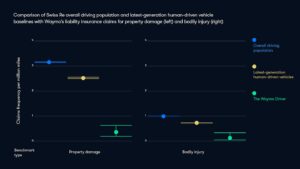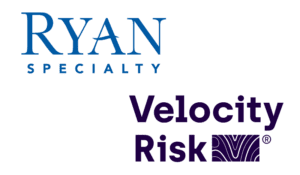Can You Refinance a Buy Here, Pay Here Car?

If you’re struggling with high interest rates and monthly payments on a buy here pay here (BHPH) car loan, you may be wondering if refinancing is an option. The short answer is yes, you can refinance a buy here pay here car, but there can be some challenges that come with the process. BHPH loans can have complex terms and often come with high interest rates. It’s important to understand all of the facts and alternatives to BHPH loans before you consider refinancing. If you’re set on trying to refinance your BHPH loan, you’re in the right place.
In this article, we’ll take a closer look at what a buy here pay here car loan is, why you might want to refinance, and the steps you can take to do so.
Compare Auto Loan Rates Here:
Understanding Buy Here Pay Here Car Loans
A buy here pay here car loan is a type of financing typically offered by used car dealerships that don’t rely on outside lenders to finance their inventory. Instead, they provide in-house financing to customers who may have poor credit, limited credit history, or other financial challenges. BHPH loans are generally considered a last-resort option for borrowers who can’t qualify for traditional financing through a bank or credit union.
The terms of a BHPH loan are often less favorable than those of traditional auto loans. Interest rates can be significantly higher, sometimes reaching 20% or more. The loan terms may also be shorter, with the vehicle’s price and the borrower’s credit history determining the length of the loan. Additionally, BHPH loans often require higher down payments and may come with prepayment penalties. Borrowers should consider these facts carefully before taking a BHPH loan if there are other financing options available.
How Does a Bhph Loan Affect Your Credit?
Taking a BHPH loan doesn’t have an immediate effect on your credit score, but later actions could hurt it. It’s important to note that BHPH dealerships often don’t report to the major credit bureaus, such as Equifax, Experian, and TransUnion. This means that making timely payments on your loan won’t necessarily improve your credit score. However, if you miss payments, default on your loan, or end up having your vehicle repossessed, dealers might report this activity to credit bureaus. This can have a significant negative impact on your credit score.
In addition, BHPH loans usually come with higher interest rates than traditional auto loans, which means that you’ll pay more in interest over the life of the loan. You could see your credit score drop if you’re unable to make your payments on time.
Are There Alternatives to Bhph Loans?
Avoiding BHPH loans is a good idea for your credit health. Try these alternatives before taking a BHPH loan:
Traditional auto loans: One alternative to BHPH loans is to apply for a traditional auto loan through a bank, credit union, or other financial institution. These loans offer lower interest rates and more favorable repayment terms than BHPH loans. To qualify, you’ll need a good credit score and a steady income.Credit union loans: Credit unions are non-profit financial institutions that are owned and operated by their members. Many credit unions offer auto loans with lower interest rates and more flexible repayment terms than traditional banks. Some credit unions also offer special programs for buyers with limited credit histories or poor credit scores.Personal loans: Another option is to apply for a personal loan, which can be used to purchase a car from a private seller or dealership. Personal loans usually have lower interest rates than BHPH loans but may require a good credit score and steady income to qualify.Co-signer loans: If you have a poor credit score or limited credit history, one option is to apply for a co-signer loan. This involves finding a family member or friend with good credit to cosign the loan, which can help you qualify with more favorable terms.Lease-to-own programs: These programs allow you to lease a car with the option to buy it at the end of the lease term. While lease-to-own programs can be more expensive than traditional leases, they may be a good option if you have poor credit or limited funds for a down payment.
Can You Get Out of a Bhph Loan?
If you’re forced to take a BHPH loan, it can be difficult to get out of it. Aside from paying it off or selling the vehicle, one of the few other options is refinancing. Refinancing isn’t always a guarantee, however, because some lenders won’t even consider a BHPH vehicle for a loan. Sometimes, you can negotiate with the lender for better loan terms, but BHPH lenders may be stricter with their terms and less willing to change anything.
Another way to get out of a BHPH loan is to file for bankruptcy, but let’s be honest, that’s not an ideal situation. Bankruptcy can be incredibly damaging to your credit score and remains a factor in your credit history for years after filing.
Do Bhph Lenders Install Tracking Devices on Their Vehicles?
Some lenders might install a GPS tracking device on a vehicle they own until you pay off the loan. One of the primary reasons BHPH lenders install tracking devices is to reduce the risk of default. By always knowing the location of the vehicle, they can repossess it quickly and easily if the borrower fails to make their payments on time. This reduces their financial risk and helps them recover their investment in the vehicle.
Tracking devices can also help recover stolen vehicles. Because these lenders often work with individuals who have poor credit, they may be more likely to finance vehicles that are at higher risk of theft. By installing a tracking device, they can work with law enforcement to locate and recover the vehicle if someone steals it.
Why Refinance a Buy Here Pay Here Car Loan?
Refinancing a BHPH car loan can help you reduce your monthly payments and save money on interest charges over the life of the loan. Here are a few reasons why you might want to consider refinancing:
Lower interest rates: If you’ve improved your credit score since taking out your loan, you might qualify for a lower interest rate. Even a small decrease in your rate can save you thousands of dollars over the life of the loan.Lower monthly payments: Refinancing your loan can also help you lower your monthly payments. By extending the length of your loan, you can spread your payments out over a longer period, reducing the amount you owe each month.Improved loan terms: Refinancing can also help you improve the overall terms of your loan. For example, if your original loan had a high interest rate and a short repayment term, you may be able to refinance with a longer repayment term and a lower interest rate.Find a more reputable lender: Refinancing your BHPH loan can allow you to work with a lender that provides better customer service or offers more convenient payment options.Change the loan type: Refinancing can also help you change the loan type, such as switching from a variable-rate loan to a fixed-rate loan, which can help you budget more effectively.
Buying with Cash
If your BHPH lot accepts cash payments for vehicles, this can be a good option for avoiding a loan altogether. Here are some pros and cons of paying in cash instead of taking a loan:
Pros:
No interest or fees: By paying cash up front, you won’t have to worry about paying any interest or fees associated with financing. This can save you a significant amount of money over the life of the loan.Easier negotiation: When you pay cash, you have more leverage when it comes to negotiating the price of the vehicle. Dealerships may be more willing to give you a better deal if they know they’ll be receiving payment in full.Quicker purchase process: Paying with cash means you don’t have to sit and wait for approval for a loan. This makes the entire process more convenient and quicker for the customer.
Cons:
Limited options: Since BHPH lots typically make more money on loans, they may not offer a wide selection of vehicles to cash buyers.Does not build credit: If you have poor credit or no credit history, paying cash won’t help you build your credit or improve your score. This can be a drawback if you’re looking to improve your credit over time.Depletion of cash reserves: Using a significant amount of cash to buy a car can drain your savings and strain your finances. This could mean missing out on opportunities to invest your money or cover emergency expenses that arise.
Steps for Getting a Refinance Loan for a Bhph Vehicle
If you’re dedicated to getting a refinance loan for your BHPH vehicle, you can follow these steps:
Step 1: Determine If Refinancing Is the Right Option
Before you begin the refinance process, it’s important to determine if refinancing your BHPH loan is the right option for you. Consider factors such as your credit score, financial situation, and the terms of your current loan. If you’re struggling to make your monthly payments or have a high interest rate on your current loan, refinancing may be a good option for you. Sometimes, simply selling the vehicle can be a better financial decision. You may not qualify for refinancing if the vehicle has 100,000 or more miles on it, is more than 10 years old, or has mechanical problems.
Step 2: Research Lenders
Once you’ve determined that refinancing is the right option for you, research lenders that offer BHPH refinance loans. Look for lenders that specialize in refinancing BHPH loans or have experience working with borrowers who have poor credit. Make sure your vehicle qualifies under their terms. Compare interest rates, fees, and loan terms to find the best lender for your needs. Getting the best loan means putting some time into the research process and contacting lenders for details. You can also get pre-approved, with some lenders only performing a soft credit check so as not to affect your score.
Step 3: Gather Documents
To apply for a refinance loan, you’ll need to gather documents such as your driver’s license, proof of income, and proof of insurance. You may also need to provide your current loan agreement, payment history, and vehicle information. Most lenders want to know details about your car, like the year, make, model, mileage, and maintenance history. If you have documentation of any maintenance you’ve performed since owning the vehicle, include that as well.
Step 4: Apply for the Refinance Loan
With all the necessary documents, you can apply for the refinance loan with the lender of your choice. You can apply online or in person at a bank or credit union. Be prepared to provide detailed information about your current loan, your financial situation, and your credit history. The lender will run a hard credit check before approving your loan, which affects your score. This is why getting pre-approved is a good idea, so you know which lenders might approve you before actually going to a bank. The application process itself is typically only 10 to 15 minutes long, excluding any wait time for in-person applications.
Step 5: Review and Accept the Loan Terms
If you’re approved for the refinance loan, review the terms carefully before accepting. Make sure you understand the interest rate, monthly payments, and repayment term. If you have any questions or concerns, don’t hesitate to ask the lender for clarification. The annual percentage rate and the length of the loan will tell you how much you’ll pay in interest over time. The lender summarizes this amount in the loan documents. Once you’ve reviewed the terms and are satisfied, accept the loan. The lender will pay off your old car loan, and you can begin making payments on the new loan.
Conclusion
Overall, a BHPH loan is a last-resort option that comes with many drawbacks. If you can, consider alternative lending options or buying with cash. Remember that you may not qualify for refinancing with a BHPH loan, but this depends entirely on your vehicle, your credit and financial situation, and the lender with whom you’re working.
Hearst Autos Research, produced independently of the Car and Driver editorial staff, provides articles about cars and the automotive industry to help readers make informed purchasing choices.
Finance & Insurance Editor
Ashley Donohoe has written professionally about business and finance since 2010 and has served as an expert reviewer since 2017. Her work has appeared on major websites such as Money.com, The Balance, and the Miami Herald. Having run her own business, she has broad expertise in taxation, financial management, accounting, and investments. Her educational background includes a B.S. in Multidisciplinary Studies, Master of Business Administration, and certifications in accounting and taxation.



